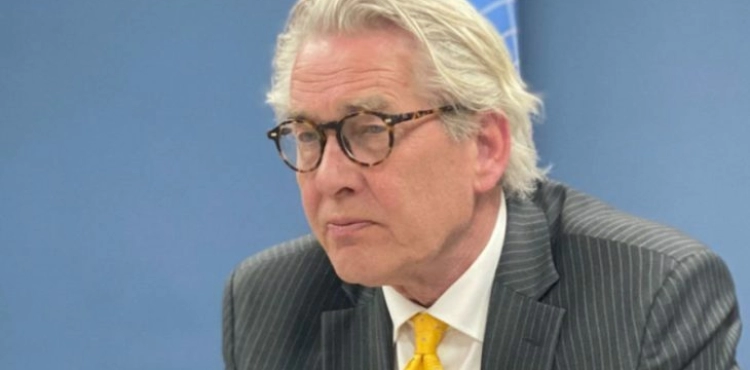The United Nations Special Coordinator for the Middle East Peace Process, Tor Wencesland, has called for the revival of a genuine political process to address the underlying drivers of the Israeli-Palestinian conflict.
Wencesland said during a Security Council meeting that the ceasefire announced independently by Israel and Palestinian Islamic Jihad after three days of military escalation in early August was still in effect, and a fragile calm had returned to Gaza.
He added that the Beit Hanoun crossings "Erez and Kerem Shalom" have been open since August 8, allowing goods and basic materials to enter Gaza. The United Nations is working with partners to ensure that urgent assistance is delivered to those who need it most.
He explained that the ceasefire prevented the situation from escalating into an all-out war, which could have had devastating consequences. It also allowed the resumption of measures implemented over the past year, which have resulted in much-needed economic relief for Gazans. However, a ceasefire is limited to an immediate end to hostilities, and the underlying drivers of conflict remain unaddressed.
He said that violence has escalated in most parts of the occupied West Bank. Israeli settlement activities continue, along with demolitions and evictions, noting that financial and political challenges threaten the effectiveness of the Palestinian Authority in providing basic public services. The West Bank and Gaza Strip remain politically divided. Palestinians in Gaza are challenged by the economic and movement restrictions associated with the Israeli closure regime, the nature of Hamas rule, and the continuing threat of violence.
"Unless the core issues are addressed, the cycle of acute crisis followed by short-term reforms will continue. A concerted effort is needed to restore the political horizon and restart meaningful negotiations," Wencesland said.
He said conflict management is not a substitute for a genuine political process. He stressed the need to draw attention again to the broader strategy of ending the occupation and achieving a two-state solution in line with United Nations resolutions, international law and previous agreements, adding, "We must work to restore a political horizon, this is critical."
He noted that as a first step, tensions and violence throughout the occupied Palestinian territories should be halted or significantly reduced, particularly in the West Bank, including East Jerusalem. The unilateral steps that perpetuate negative trends must stop. The area of ​​Palestinian economic activity must be expanded and access and movement in Gaza and the West Bank further improved. At the same time, the Palestinian Authority must be strengthened, which includes strengthening its institutional capacity.
"The status quo is neither a strategy nor a strategic option, nor in favor of positive change on the ground nor a resumption of talks between the two sides. I urge the Israeli and Palestinian leaderships, regional states and the broader international community to take strong action in order to return to meaningful negotiations," he said.
Wencesland calls for the revival of a genuine political process that addresses the foundations of the Israeli-Palestinian conflict












